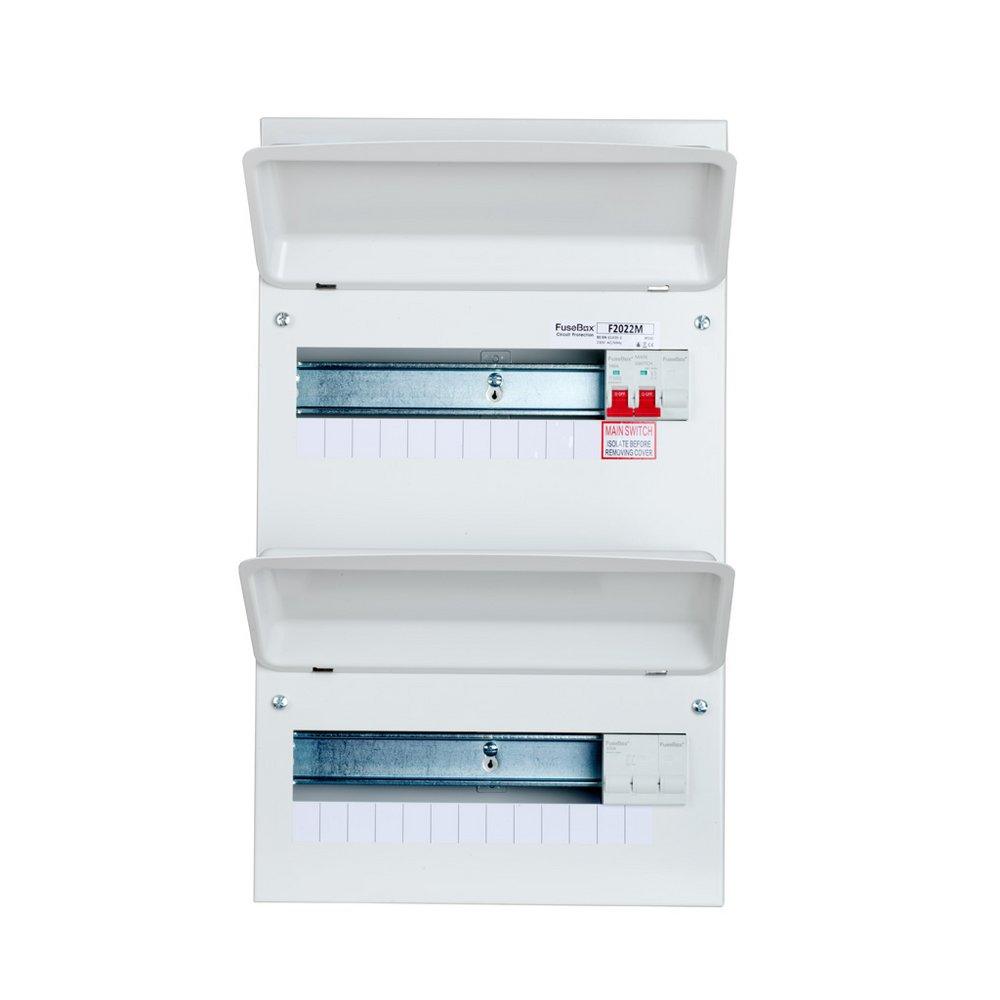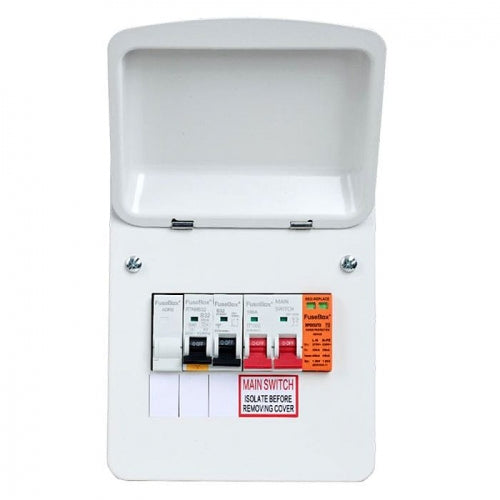The Role of Consumer Devices in Effective Power Administration Systems
Consumer devices are essential to reliable energy management systems, serving as the key circulation factors for electrical power within structures. The arrival of wise innovations has further boosted their performance, permitting for real-time information surveillance and nuanced power consumption evaluation.
Comprehending Consumer Devices

Comprehending the function of customer systems starts with acknowledging their vital function in protecting electric systems. By isolating faults within particular circuits, customer units protect against prevalent outages and potential fire threats. This seclusion is accomplished with using breaker that journey or integrates that strike when a fault is identified, thus removing the electric flow to the impacted circuit.
Furthermore, consumer devices assist in the organized circulation of power, improving the efficiency of energy use. They enable the organized administration of electric loads, which can be particularly vital in commercial and commercial setups where demand can rise and fall substantially. Correctly conserved consumer units add to the long life of electric systems and aid in reducing downtime triggered by electric failings, inevitably sustaining the seamless procedure of energy-dependent centers.
Smart Technologies Assimilation

A crucial benefit of smart consumer devices is their capacity to utilize progressed formulas and artificial intelligence for predictive analytics. This permits for preemptive adjustments based on use patterns, weather report, and various other variables, dramatically raising overall effectiveness. Wise consumer units facilitate need action programs, where energy use can be dynamically adjusted throughout optimal durations to support the grid and minimize costs.
The combination of renewable resource sources, such as solar and wind, is additionally streamlined through clever consumer systems. By wisely handling the intermittency of these sources, these units guarantee a dependable and balanced power supply. Furthermore, smart customer units improve customer involvement by giving thorough insights and remote control capacities via mobile applications, promoting a more proactive method to energy conservation and sustainability.
Monitoring Energy Usage
Building on the abilities of wise innovations combination, checking energy intake ends up being an essential emphasis within energy administration systems. Efficient tracking acts as the structure for identifying power ineffectiveness and executing corrective actions. By leveraging innovative metering infrastructure (AMI), real-time information on power use can be accumulated at granular levels, supplying beneficial understandings into consumption patterns and peak demand durations. This data-centric method enables both consumers and power supervisors to make educated decisions targeted at lowering waste and improving total effectiveness.
Smart meters and Internet of Points (IoT) tools play a critical function in this monitoring process. These devices can track energy usage in real-time, sending data to centralized systems for analysis.
The integration of these modern technologies not just equips customers with in-depth info regarding their energy use however likewise supports utility service providers in handling tons distribution much more efficiently. Eventually, continuous and precise monitoring is essential for accomplishing power efficiency, cost financial savings, and sustainability goals within power management systems.
Optimizing Appliance Usage

One this link reliable method entails recognizing peak and off-peak hours to change energy-intensive activities, such as laundry or dishwashing, to times when power demand is reduced. This not only decreases strain on the grid but also maximizes lower energy tariffs. In addition, incorporating artificial intelligence algorithms permits predictive maintenance, making certain appliances operate at optimum efficiency and prolonging their lifespan.
Energy administration systems can also include user-specific preferences and actions to tailor home appliance use routines. Clever lights systems can readjust brightness based on occupancy and natural light accessibility, while Cooling and heating systems can preserve convenience levels without extreme power use.
Encouraging Sustainability
Promoting sustainability within energy monitoring systems entails not just boosting efficiency but also fostering ecologically responsible techniques. Customer systems are essential to this process, as they give real-time information and control devices that enable customers to keep an eye on and decrease their energy consumption. By leveraging advanced innovations, consumer systems can identify energy-saving possibilities and assist in the assimilation of sustainable power resources like solar and wind power.
One critical aspect of promoting sustainability is informing customers on the benefits of accountable energy use. Via in-depth insights supplied by consumer units, customers can make educated choices that lessen their carbon impact. For instance, these units can advise optimum times for operating high-energy home appliances based on grid need and renewable resource accessibility, thereby decreasing dependence on nonrenewable fuel sources.
Moreover, consumer devices sustain the fostering of wise grid technologies, which enhance the total performance and reliability of the original source power distribution. By enabling two-way communication in between customers and energy suppliers, these systems can dynamically adapt to energy demands, lowering waste and advertising using sustainable power practices.
Final Thought
Consumer units, as indispensable components of power management systems, significantly improve electrical safety and security and effectiveness within buildings via circuit protection and smart modern technology assimilation. Real-time information tracking and analysis promoted by these devices enhance energy consumption and home appliance usage. Furthermore, the incorporation of renewable resource sources advertises sustainable practices, adding to decreased total power usage and reduced carbon footprints. Customer units play a crucial role in progressing both energy effectiveness and environmental sustainability.
Breakthroughs in clever modern technologies have transformed the capabilities of power management systems, especially via the integration of smart customer systems.Structure on the Our site capacities of smart technologies integration, keeping an eye on power intake becomes a crucial emphasis within power monitoring systems.Reliable device use optimization is an important part of power administration systems, intending to enhance efficiency and decrease unneeded power intake.Customer devices, as essential components of power monitoring systems, significantly enhance electric safety and efficiency within buildings via circuit defense and clever technology integration. In addition, the unification of sustainable power resources advertises sustainable practices, adding to reduced total power consumption and lower carbon impacts.